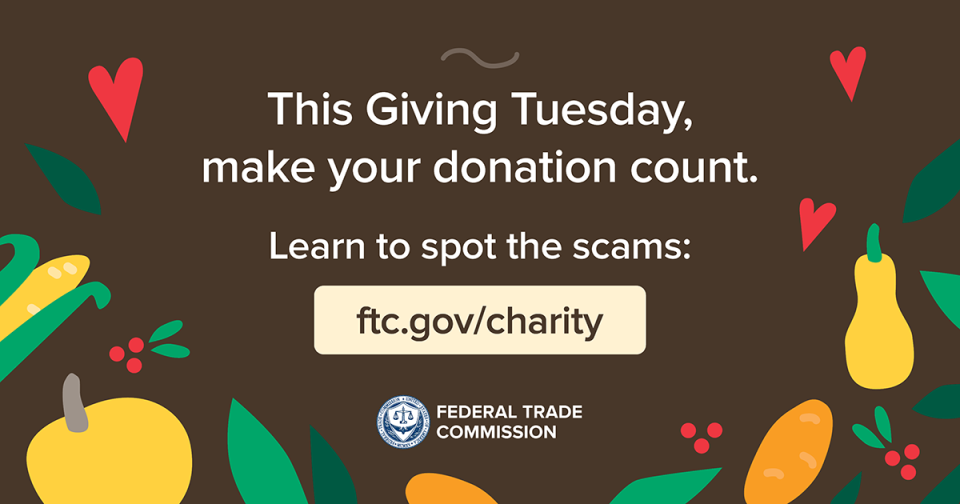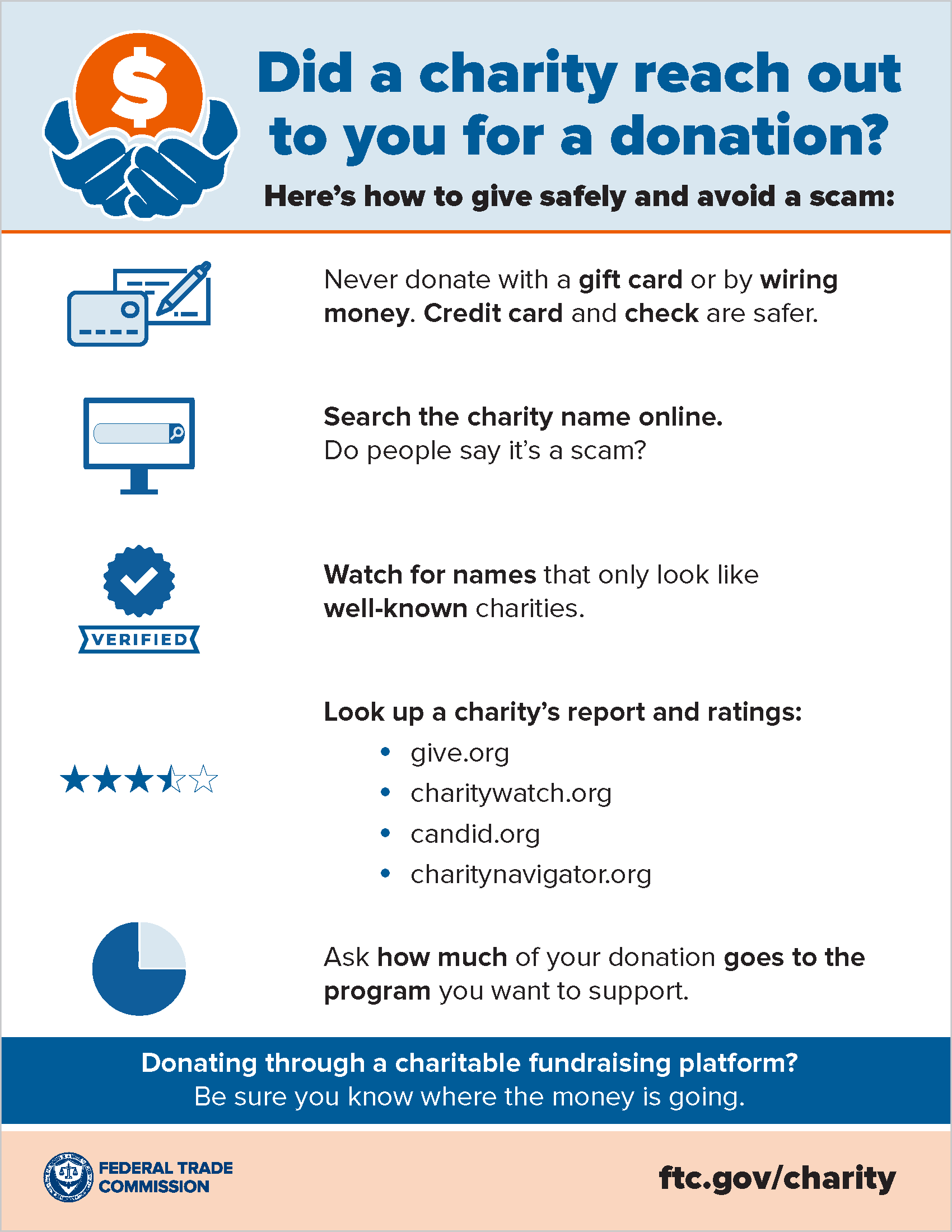Giving Tuesday is a terrific time to support your favorite cause or charity. Here’s how to avoid charity scams and make your donations count.
-
- Donate to charities you know and trust. Watch out for names that only look like real charities. Donate using contact information you know is real, like the charity’s website.
- Research the organization — especially if the donation request comes unexpectedly. Search the name plus “complaint,” “review,” “rating,” or “scam.” And check out the charity with the Better Business Bureau's (BBB) Wise Giving Alliance, Charity Navigator, Charity Watch, or Candid. If the message was from a friend, ask them if they know the organization themselves.
- Confirm the number before you text to donate. Go straight to the charity to confirm the number. If it’s not their number, use a number you know is real or go to the charity’s website to donate.
- Be cautious about donating to an individual in crowdfunding sites. Some scammers pretend to collect for a cause but their true intentions are to pocket your money. Giving to someone you personally know and trust is safest. Review the platform’s policies and procedures. Some crowdfunding sites will check out postings asking for help after a humanitarian crisis to confirm they’re legit. Others don’t.
- Don’t donate to anyone who insists you pay by cash, gift card, wiring money, or cryptocurrency. That’s how scammers tell you to pay. If you decide to donate, pay by credit card, which gives you more protections.
Share this infographic to help others spot and avoid charity scams. Go to ftc.gov/charity for more.







Hello so thanks for you
Hello so thanks for you
Thank you all !
Thank you all !